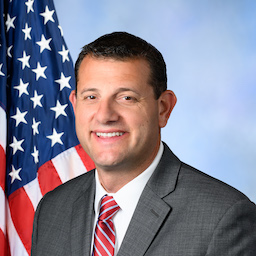- Home
- About
-
Services
- Art Competition
- Community Project Funding Map
- Congressional App Contest
- Congressional Certificate
- Event Request
- Flag Request
- Grants
- Grant Letters of Support
- Help with a Federal Agency
- Inauguration
- Internships
- Kids Page
- Meeting Request
- Service Academy Nominations
- Tour Requests
- Vietnam Veteran Commemoration
- Government Shutdown FAQ
- Issues
- Media
- Contact

Press Releases
Congressman Valadao’s WATER for California Act Passes out of House Natural Resources Committee
Washington,
April 28, 2023
|
Faith Mabry
The House Committee on Natural Resources advanced Congressman David G. Valadao’s bill, H.R. 215, the Working to Advance Tangible and Effective Reforms (WATER) for California Act, out of a full committee markup. The WATER for California Act focuses on streamlining operations, expanding water storage infrastructure, and increasing accountability.
WASHINGTON – Today, the House Committee on Natural Resources advanced Congressman David G. Valadao’s bill, H.R. 215, the Working to Advance Tangible and Effective Reforms (WATER) for California Act, out of a full committee markup. The WATER for California Act focuses on streamlining operations, expanding water storage infrastructure, and increasing accountability. “California’s recent storms have brought much needed water to our communities that have suffered drought conditions for years,” said Congressman Valadao. “Unfortunately, we’ve wasted a seemingly immeasurable amount of water because we do not have the proper storage. For years, I have stressed the dire need to increase water storage, but extreme environmentalists and Sacramento bureaucrats have grossly mismanaged our water and prevented these projects from getting off the ground. “If we don’t take action to fix the complex and contradictory laws and regulations that control how much we’re able to pump, and what storage projects we’re able to build or use, our ability to provide food for the nation will be in trouble. The WATER for California Act brings desperately needed commonsense to the way we manage water, and I look forward to working with my colleagues to advance this critical legislation.” Background: The comprehensive legislation promotes water conveyance through the Sacramento-San Joaquin River Delta, consistent with the Endangered Species Act, and advances key surface water infrastructure projects. Among other provisions, the WATER for California Act:
|

